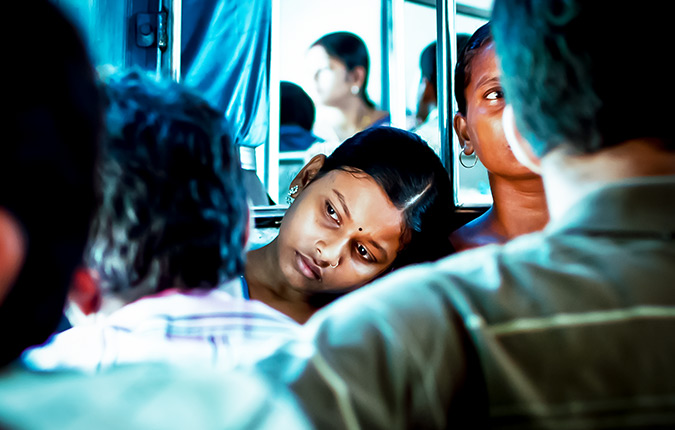India's Smart Cities Mission
Date:
Authors: UN Women India Violence against Women Programme Team
The Government of India launched the Smart Cities Mission on 25 June 2015. The objective of the mission is to promote sustainable and inclusive cities that provide core infrastructure and a decent quality of life to their citizens; a clean and sustainable environment; and the application of “smart” solutions. Women constitute a little less than half of the urban population in India. It is crucial that the design of upcoming smart cities is gender responsive and considers the differential needs of women, proactively seeking to bridge inequalities between women and men. It is an enormous opportunity to reframe cities in a gender sensitive way to make them safer and more accessible for women and girls.

In general, women’s experience of cities is shaped by the manner in which gender roles are constructed. Gender roles contribute to differentiations in women’s participation in the workforce, as well as in the division of labour within homes, contributing to the construction of unequal urban realities for women. Urban poverty has a disproportionately high impact on women, who comprise a majority of the urban poor, with limited access to essential services.
Women and girls are subjected to various types of sexual violence – from sexual harassment (physical, visual and verbal) to sexual assault, whether on city streets, in public transport or their own neighbourhoods. Such daily occurrences of violence limits their rights and freedoms as equal citizens to enjoy their neighbourhoods and cities, and to exercise rights to mobility, education, work, recreation, collective organisation and participation in political life. Fear of violence is equally an important determining factor.
A UN Women baseline research in 2012 of the Delhi Safe City programme showed that 95 per cent women and girls had experienced sexual harassment in public spaces. But this isn’t just a Delhi problem. A recent study by Oxfam India across eight cities showed that 17 per cent of working women in India had faced sexual harassment at work, and an overwhelming majority of them did not resort to any formal action against the perpetrator because they were afraid of “losing the job”. The absence of complaint mechanisms at the workplace made reporting harassment even more difficult.
Of course, the most significant hurdle to eliminating and preventing violence remains the persistence of attitudes and behaviour that perpetuate negative stereotypes, discrimination and gender inequality.
Inadequate shelter impacts the safety of many homeless women in urban areas. Further, the lack of basic services, including transportation and sanitation and infrastructure have a disproportionate impact on women. For instance, open defecation, particularly in the dark, substantially increases risks of sexual violence.
Under the Sustainable Development Agenda 2030, Goal 11 calls for making cities and urban settlements inclusive, safe, resilient and sustainable, and is intrinsically linked to Sustainable Development Goal 5 on gender equality. This is aligned with the Smart Cities Mission, and cannot be accomplished without addressing safe, inclusive and affordable housing, transportation, and public spaces and services for women and girls. The second crucial development has been the adoption of the New Urban Agenda (NUA) at the United Nations Conference on Housing and Sustainable Urban Development or "Habitat III" held in Quito in 2016. The NUA sets global standards in sustainable urban development and calls for cities to be secure, positive, respectful and safe places for all people to live and work without fear of violence or intimidation. India is committed to both these agendas and actively participated in the deliberations that led to the adoption of these documents.
As cities develop, we must ensure that women’s voices and needs are heard, that women participate equally in decision-making and that development policies and efforts include a gender perspective.
UN Women India Multi-Country Office implements the “Safe Cities and Safe Public Spaces” programme with government partners, women’s rights organizations, civil society organizations and UN agencies in Delhi NCT, Madhya Pradesh (Bhopal), Rajasthan (Jaipur), Maharashtra (Mumbai), Kerala (Cochin) and Assam (Guwahati). It aims to develop, implement, and evaluate tools, policies and comprehensive approaches on the prevention of and response to sexual harassment and other forms of sexual violence against women and girls across different settings.
For more information:
Anju Pandey
Programme Specialist,
Ending Violence Against Women, UN Women
C-83, Defence Colony
New Delhi 110024 INDIA
Tel: +91-11-4045 2303
Email: [ Click to reveal ]
Diya Nanda
Intergovernmental Processes and Coordination Analyst, UN Women
C-83, Defence Colony
New Delhi 110024 INDIA
Tel: +91-11-4045 2346
Email: [ Click to reveal ]